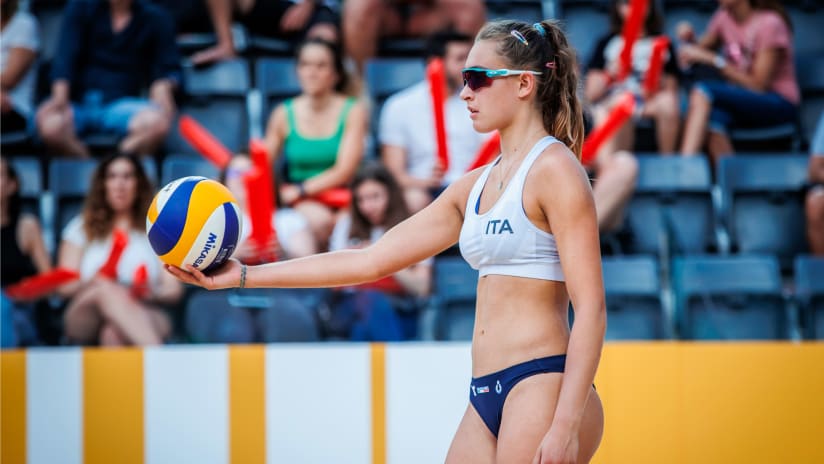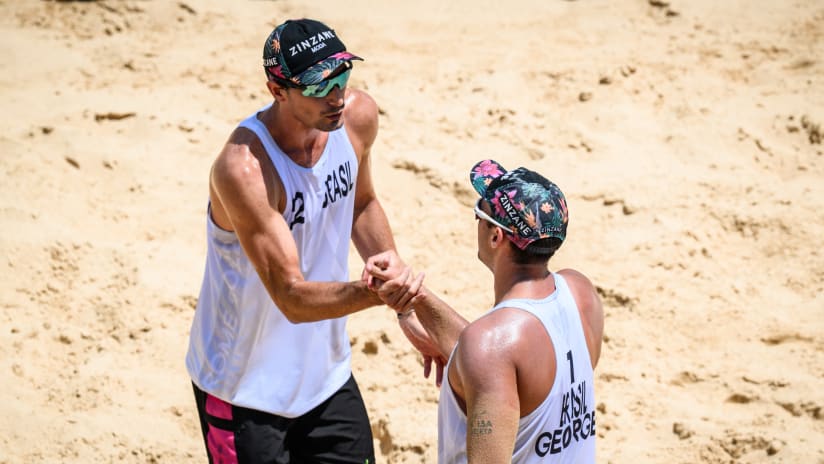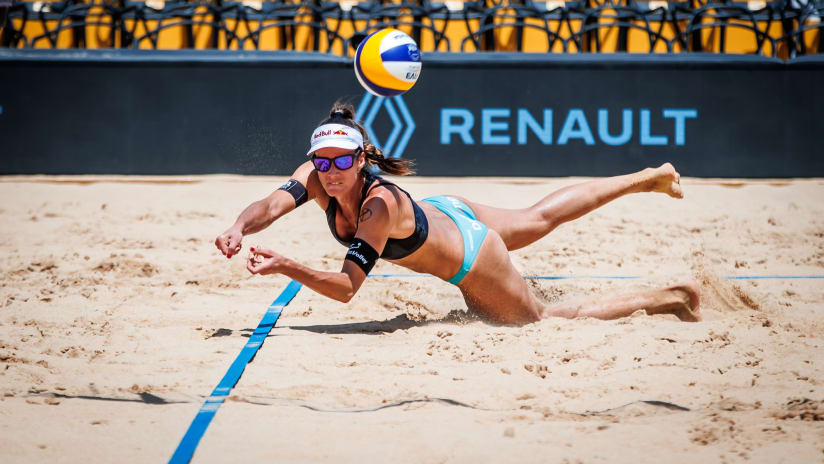They’re proud of themselves, Chaim Schalk and Theo Brunner. As they very well should be. Take a look at where they are now: Contending for a bronze medal on Sunday at the 2022 World Championships. Now take a look at where they were a year ago: Battling in country quotas and qualifiers just to earn a seat at the main draw table. Nine tournaments did the Americans play in 2021, seven of them beginning in either country quotas or qualifiers – five of them in quotas – with five main draws made.
Beach Volleyball World Champs 2022
Chaim Schalk, Theo Brunner are proud of where they've come, but not yet satisfied
The Americans have risen from country quotas and qualifiers and are in contention for a World Championship medal
Опубликовано 06:50, 19 июн. 2022
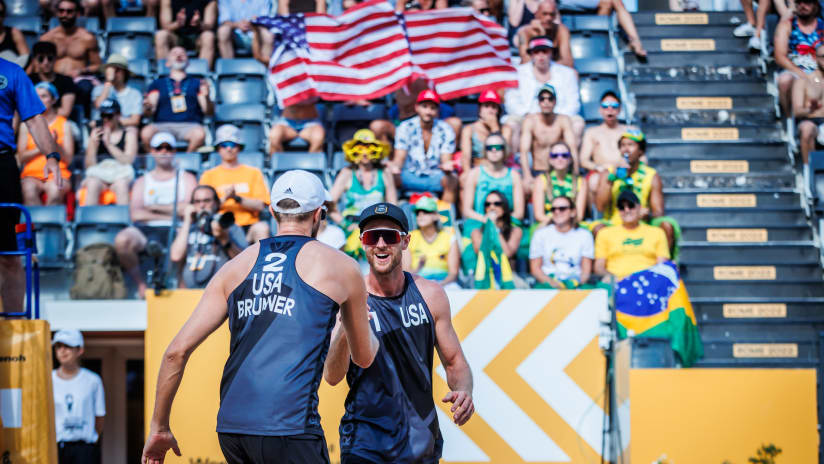
Now? Well, look at them now: No. 1 in the United States, the only American team, male or female, remaining in these World Championships, seeking to become the first male American team to win a medal since Phil Dalhausser and Todd Rogers claimed bronze in Stavanger, Norway, in 2009.
“We’ve come a really long way since last year,” Brunner said after a 17-21, 19-21 semifinal loss to Brazilians Renato Lima and Vitor Felipe. “We’re proud of ourselves, but we want to wait until tomorrow to be really proud of ourselves.”
By tomorrow, he means Sunday, podium day. He’s been here before, Brunner. In 2015, with Nick Lucena, Brunner authored one upset after another at the World Championships in the Netherlands, stunning Emanuel Rego and Ricardo Santos in the round of 16, then slipping past Cherif Younousse and Jefferson Pereira to make the medal rounds. Alas, that was the end of the Cinderella run for the 15th-seeded Americans, with back-to-back losses to eventual champions Alison Cerutti and Bruno Schmidt, and Evandro Goncalves and Pedro Solberg.
While certainly not a bad finish by any means, a fourth is widely regarded as the most brutal in beach volleyball: Twice was a medal within 21 points’ reach, twice did it slip through the grasp.
“You know I’m going 1,000 percent tomorrow to avoid that fourth again,” Brunner said. “Whatever happens tomorrow, as long as I play the game I want to play, the game we want to play, I’m happy.”
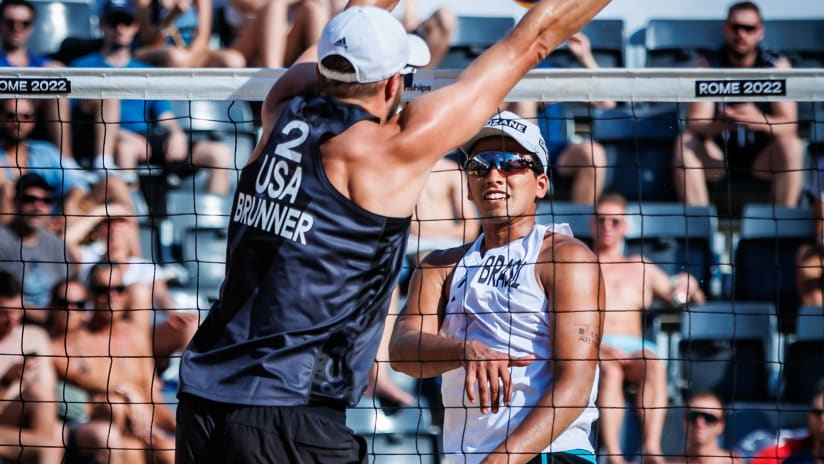
That game has gotten them to where they are now: Seeking to become the first American medallist without the services of Dalhausser since Dax Holdren and Stein Metzger won silver in 2003 in Rio de Janeiro. It is moments like these, opportunities like these, that are the very reason Schalk took a massive risk in his career and transferred to compete for the United States after a brilliant career for Canada.
For two years, Schalk had to sit out of the World Tour, waiting for his transfer period to end. And when he began for the U.S., he did so at the bottom, with zero international points to his name and a deep roster of teams to pass. Pass he did. The journey has both been agonizingly long and remarkably fast, one replete with heart-wrenching losses -- such as the long trips to Mexico, Russia, the Czech Republic, where they fell in qualifiers -- and enormous successes, none bigger than what they have already achieved this week in Rome.
Both of them, of course, knew this wouldn’t be easy. Schalk knew exactly what he was getting into when he traded his spot at the top of the metaphorical Canadian totem pole for the bottom of the United States’. Brunner knew exactly what he was getting himself into when he decided to play with a partner with zero points. They knew the risks – and potential rewards. Brunner has long been known as one of the most formidable blockers not only in the United States but the world; Schalk qualified for the 2016 Olympic Games with Ben Saxton and has proven to be an elite defender capable of winning medals at the highest level.
The risk, in other words, was more than worth the potential landslide of rewards to come.
“This is our second year together, it’s great,” Schalk said. “We’re learning each other more and more, we’re learning how each other tick. A year ago we were in the qualifier so now we’re an elite team and we want to be a top team in the world. We just gotta keep going.
“That’s the ultimate goal: To keep building. We’re going for Paris [host of the Olympic Games in 2024], so every tournament, every season, we want to keep building as a team. We are showing a lot of growth. These tough losses will help us in the long run but our trajectory is good.”
The immediate question, for now, is this: Will their trajectory be good enough for the first American male World Championship medal in 13 years?
“We have a lot of work to do in this tournament,” Schalk said. “We want to medal.”
“We just gotta reset and impose our will tomorrow,” Brunner added. “Hopefully that results in a win. That’s the main thing: Just playing a little bit better.”
